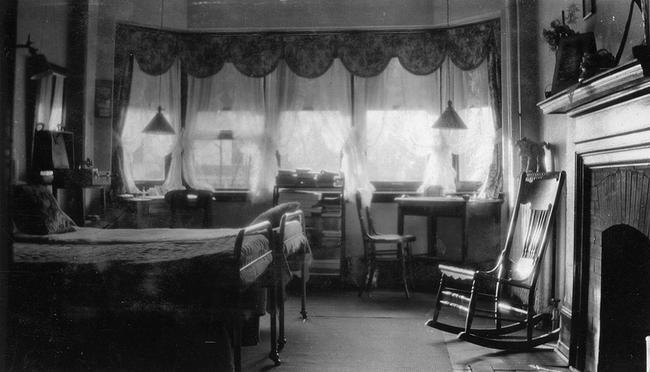Sometimes, in the hustle and bustle of campus planning, university officials have to fit a circle into a square. Sometimes the Large Ensembles division of the School of Music has to fit into what was once a dining hall. Sometimes the English Department has to fit into a former residence hall.
Many halls at MU, from Loeb and McReynolds to Read and Gentry, have been converted throughout the years from hospitals, residence halls and dining halls into flex space, office space and other spaces to fit university needs. In some cases, the switches are smooth and comfortably received by its new inhabitants. In others, it’s not quite so perfect.
Loeb Hall, which the School of Music took over in 1995, is poorly equipped in areas for large ensemble practice, Coordinator of Large Instrumental Ensembles Margaret Lawless said. There is a large pillar in the center of the main practice room, blocking the view of the conductor for anyone behind it, and acoustics of the large room are what Lawless calls “unacceptably loud.”
The School of Music is also divided into five separate buildings, creating a problem for large instrument players.
“Many of the students, some of whom have very heavy instruments, would have to carry their instruments across campus to participate in rehearsals, and then take them back to the Fine Arts Building to have private lessons,” Lawless said.
Many university departments have offices in former residence halls such as Read, Gentry, McReynolds, Lewis and Clark Halls. Residence hall rooms can make for some cramped spacing, as well as awkward maintenance issues.
“One time we had a window left open, and it caused a pipe to freeze,” Lewis Hall Building Coordinator Leanna Garrison said. “The leak of the pipe went down two or three floors, and trying to track where it came from became difficult.”
In Read Hall, a former women’s residence hall that hasn’t housed students since 1939, poorly sealed fireplaces have resulted in moisture leaks in the offices of what is now the home of the History Department.
“They redid my wall upstairs,” History Department Chairman Russ Zguta said. “No sooner did they redo it and repaint it, but next time we had significant rain, the walls started bubbling again.”
Zguta said the problem with leaks was fixed after thorough maintenance of the roof last year.
Former residence hall McReynolds Hall is temporarily housing the English Department while Tate Hall gets renovated. Room size and location have been a source of irritation among the English faculty.
“I’d say the biggest inconvenience is location, because we’re a lot farther from things compared to where Tate Hall was at,” Jessie Becker, who works in Office Support for the English Department, said.
Becker said she understands the necessity of the interim relocation.
“Obviously the size is not the most ideal, but it could be worse,” she said. “It’s better than being scattered around everywhere.”
Some reformed halls work out for the better. Counseling Center Practicum Coordinator Christy Hutton said the former university hospital, Parker Hall, is an excellent home for the Counseling Center.
“It’s fabulous, because many of our offices are in what used to be patient rooms, so they have windows and things that perhaps make it feel more welcoming,” she said. “There’s a lot of character just because of the age of the building, so it really creates sort of a warm feeling.”








